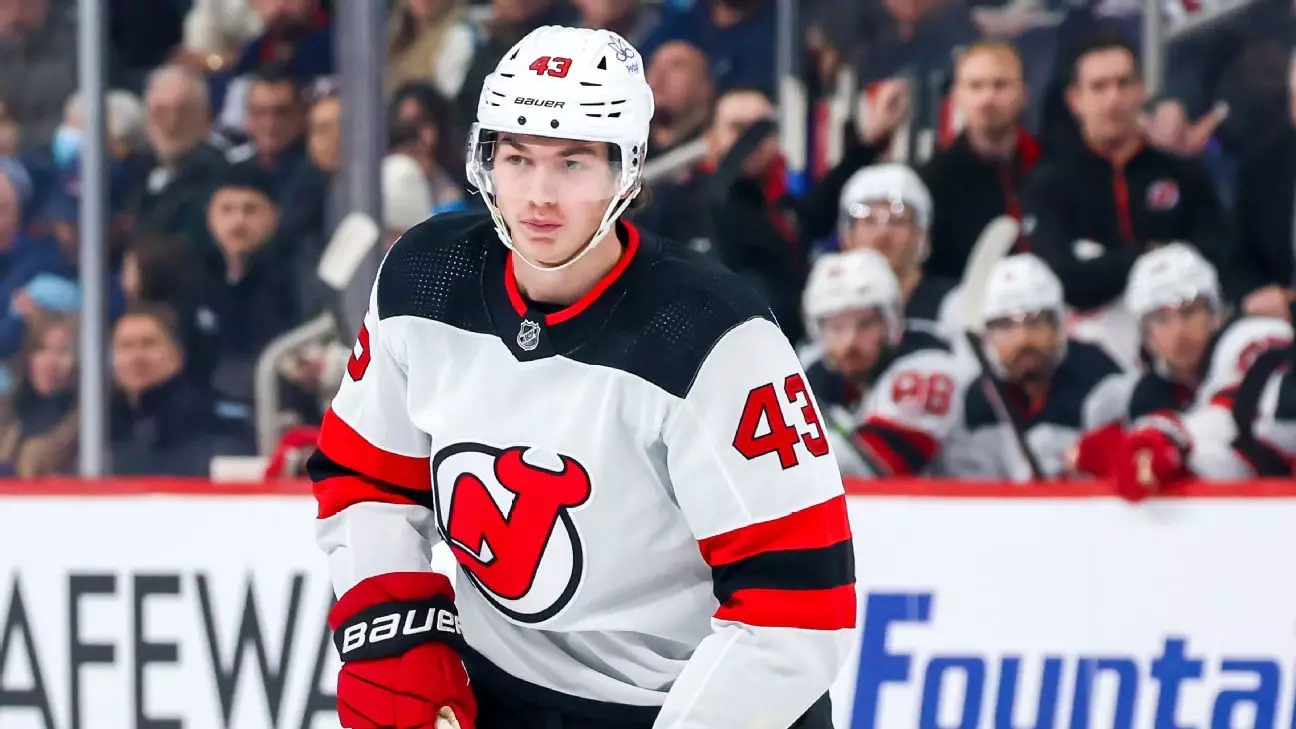Luke Hughes, the promising defenseman for the New Jersey Devils, faces a setback following a shoulder injury he sustained early in the month during offseason training. Announced by the team, the timeline for his recovery is estimated to be between six to eight weeks, which translates to a significant loss of playing time. Notably, Hughes will miss out on the Devils’ entire preseason schedule as well as the first two games of the regular season, which are set to take place on October 4 and 5 against the Buffalo Sabres in Prague, Czechia.
Fortunately, the medical team has confirmed that Hughes will not require surgery, a potentially devastating development that could have prolonged his absence. Instead, the focus will now shift to rehabilitation and recovery, emphasizing a strategy that, while less invasive, still has implications for both Hughes’s development and the team’s early season performance.
Hughes’s absence is expected to have ripple effects on the team. After a standout rookie season where he showcased his potential with 47 points—six of which were goals—Hughes emerged as one of the Devils’ key players. His recognition as a bright young talent culminated in a third-place finish in the Calder Trophy voting. As a rookie defenseman playing in all 82 games, he demonstrated not only durability but also the capacity to make significant contributions on the ice.
For the Devils, early-season results are critical. Coming off a successful 2022-2023 season where they posted 52 wins and reached the Stanley Cup playoffs for the first time in four years, the team is now under pressure to maintain that momentum. Hughes’s absence, particularly in the early games, could hinder their strategic plays and affect the chemistry with an evolving roster, as they aim for another playoff run.
If Hughes’s recovery goes as planned, the earliest he could rejoin the team would be around the week of October 20, effectively meaning he would miss the first eight games of the regular season. This potential return date does offer hope, but it also comes with concern regarding how quickly he can regain his form. The adjustment period after such an injury can often take time, and integrating him back into an already established team dynamic will be crucial.
Moreover, the Devils’ journey to recapture playoff glory will lean heavily on their ability to rally in Hughes’s absence. Players will need to step up, and the coaching staff will need to rearrange strategies to compensate for the loss of such a pivotal player. The Devils recently underwent coaching changes, hiring Sheldon Keefe after an interim regime aimed to reinvigorate the team, highlighting the ongoing transformation within the organization as they strive to optimize their talent.
While Hughes’s injury might seem like a setback, it may also offer a strategic advantage to the team in the long run. The Devils—a team built on youth and energy—benefit from the opportunity to allow their younger players to gain valuable experience in his absence. Each game missed by Hughes is a chance for another player to prove themselves, which could cultivate a deeper overall team performance when Hughes ultimately returns.
In many ways, this injury might serve as a test of the Devils’ depth and adaptability. For Hughes, the focus will shift from the ice to recovery, ensuring he comes back stronger. His trajectory remains bright, reflecting the optimism surrounding both his individual career and the collective future of the New Jersey Devils. Although adversity is part of any athlete’s journey, overcoming it plays an essential role in their development and success.
As anticipation builds for his return, the situation paints a clear picture: injuries are an unfortunate reality in sports, but they also carve opportunities for growth. The Devils, a franchise recently navigating through changes and looking to solidify their place among the NHL elite, must rally without Hughes and adapt while waiting for their defensive cornerstone to return.

